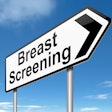Radiological societies have mixed views on the U.S. Centers for Medicare & Medicaid Services (CMS) 2025 Medicare Physician Fee Schedule (MPFS) and Hospital Outpatient Prospective Payment System (HOPPS) final rules.
Although the 2025 MPFS calls for an overall 2.9% reduction in average Medicare payment rates compared with 2024, the CMS has estimated there will be a 0% change to reimbursement for radiology, nuclear medicine, and radiation oncology. Interventional radiology will have a 2% decrease in reimbursement, however, according to an analysis by the American College of Radiology (ACR).
The change to the MPFS conversion factor reflects the 0% update required by statute for 2025, the expiration of the 2.9% temporary increase in payment amounts for 2024 required by statute, and a small budget neutrality adjustment necessary to account for changes in valuation for some services, the CMS said. This means that the finalized 2025 MPFS conversion factor is $32.35, a decrease of 2.8% from the current conversion factor of $33.29, according to the ACR.
The American Society for Radiation Oncology (ASTRO) was disappointed in the final MPFS rule.
"The final 2025 Medicare Physician Fee Schedule continues to erode reimbursement rates for radiation therapy, further diminishing access to essential cancer treatments for Medicare beneficiaries," said Howard Sandler, MD, chair of the ASTRO board of directors. "The [ASTRO] remains concerned these cost-effective services that are critical to people with cancer nationwide continue to be undervalued. This ongoing trend, with cumulative cuts now exceeding 20% in the past decade, highlights the urgent need for Congress to advance bipartisan radiation oncology payment reform."
ASTRO has been pushing for Congress to pass the bipartisan and bicameral Radiation Oncology Case Rate (ROCR) Value-Based Payment Program Act. This bill would align reimbursement with high-quality care, rather than the volume of treatments.
“The ROCR Act will increase access to lifesaving cancer treatments, incentivize high-value care, address disparities that undermine patient outcomes and provide a path to financial stability for radiation oncology clinics,” according to an ASTRO statement. “ASTRO also supports short-term relief established through the Medicare Patient Access and Practice Stabilization Act, which would eliminate the looming 2.8% payment cut for 2025 and provide an inflation-adjusted update.”
The ACR also supports the Medicare Patient Access and Practice Stabilization Act.
“As physician payment legislation continues to evolve [to address the negative adjustment], lawmakers must continue to work with the House of Medicine to enact this legislation and Medicare payment reform that stabilizes the practice environment and safeguards patient access to lifesaving care,” said ACR CEO Dana Smetherman, MD.
However, societies are also lauding the CMS for including colorectal screening in its finalized MPFS rule. Starting January 1, 2025, the CMS will cover CT colonography (CTC) as a screening test for colorectal cancer. The ACR said it applauds this decision and has “long advocated” for Medicare coverage of CTC, adding that this move by the CMS will help improve access to colorectal cancer screening and help improve health disparities.
The adjusted HOPPS rule meanwhile will see a 2.9% increase in the conversion factor from 2024, rising to $89.16 in 2025.
Part of the HOPPS rule will include doubling the reimbursement rate of cardiovascular CT services from $175 to $357.13 for coronary CT angiography (CCTA) exams. The Society of Cardiovascular Computed Tomography (SCCT) said this update “recognizes the value of CCTA in cardiac care, offering more appropriate compensation for hospitals and potentially improving patient access.”
“This is a huge win for U.S. providers and the entire cardiac imaging community,” said Ahmad Slim, MD, chair of the SCCT Health Policy and Practice Committee. “The reclassification to a higher ambulatory payment classification reflects the resource intensity needed for CCTA and encourages its broader use for better outcomes.”
The Society of Nuclear Medicine and Molecular Imaging (SNMMI), meanwhile, is applauding the adjusted HOPPS rule for addressing financial barriers related to patient access to essential nuclear medicine diagnostic procedures. With this rule in place, the CMS will unpackage and pay separately for diagnostic radiopharmaceuticals with per-day costs exceeding $630.
The society said it will continue to work with the CMS to refine and enhance the reimbursement models.
“This decision is a critical victory for patients who need advanced diagnostic care,” said SNMMI President Cathy Sue Cutler, PhD. “We commend CMS for this significant move to improve access to life-saving nuclear medicine scans, ensuring that patients across the country can receive the best possible care.”



















